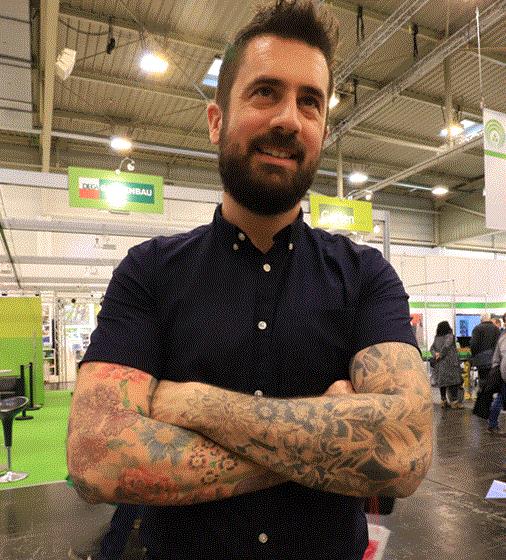IL headed to $15 minimum wage … and fast!
New Illinois governor J.B. Pritzker wasted no time in enacting a minimum wage bill that would increase the minimum wage from the current $8.25 to $15 in six years—by 2025.
That’s just behind the pace of California (2022), Massachusetts (2023) and New Jersey (2024).
The law does have a few clauses that help ease the pain for employers. First, there’ll be a tax credit for businesses with 50 or fewer employees. They’ll be able to take tax credit for 25% of the cost in 2020, with the credit scaling back and then phasing out.

Also, the minimum wage for workers under 18 who work fewer than 650 hours in a year will only increase to $13 per hour (it’s currently $7.75).
That’s challenging news for any business, not just small ones and not just those classified as agricultural, and we are currently doing reporting on how growers and retailers in those states plan to cope with the increase in costs. Not only that, but how do they plan to spread increases across other staff who already make more than the minimum and probably expect to see their own wages increase in a comparable way?
What about overtime exemptions?
One thing ag businesses have been able to count on to help ease the payroll pain has been not having to pay overtime, which can quickly add up during those crazy 60-hour spring weeks. Alas, those exemptions could be in danger, too, if states follow the lead of California, which in 2016 passed legislation that would, by 2022, require that agriculture businesses pay overtime the same as non-ag businesses (more than 8 hours/day and 40 hours/week). The new law kicked in at 10 hours a day/60 hours a week, and this year dropped to 9 1/2 hours a day/55 hours a week.
Smaller businesses (25 or fewer employees) have until 2025 to meet the 40-hour work-week rule.
I hear that New York and Oregon are also looking at changing their ag overtime rules.
I don’t know if this has nearly as much impact as minimum wage (you tell me!), but it’s one more factor to consider.
How are you handling wage increases?
I’ve already had growers in Illinois ask me, “How are other businesses handling this?” I’ve had to answer, “I don’t know.”
I’d like to remedy that. If you have an ag business in a state that’s on the fast track to $15 an hour; or, if you see the handwriting on the wall in your state and have decided to get ahead of the problem, how are you handling it?
- How are you paying for the increase?
- How has it impacted your staffing plans?
- How do you handle the wages of other employees?
You can share your name or we can keep it confidential if you prefer. But if you’ve come up with a good plan that seems to be working, please share it! After all, a rising tide floats all boats, while a rising payroll could sink some.
Actually, I can think of one business that’s got a plan: Color Orchids in Stevensburg, Virginia. I visited them in 2016; at that time owner Ben Van Wingerden was already getting ahead of any pending minimum wage increases by paying $14 to start, with plans to go to $15. His argument was two-fold:
First, “It gives us a better workforce,” he explains. “You can raise your expectations, too. And that’s exactly what we do. … There are a lot of costs within mistakes. You pay more, [you get] fewer mistakes, it comes back to you. It’s hard to measure, but it comes back to you. And as long as you’re hitting your numbers, who cares?”
Second, Ben said it’s much better to be proactive and pay $15 an hour well before the government mandates it. If you do that, you get credit for being a generous boss. If you wait, you’re only doing what the law requires.
Just before press time, I got an in-depth reply from an Illinois grower that I’ll share next time, along with any comments or details you provide.

Proven Winners partners with Classic Caladiums
They’ve come a long way from bacopa and scaevola! Proven Winners is once again expanding their assortment by adding caladiums from breeder and producer Classic Caladiums, which was co-founded by breeder and tissue culture expert Bob Hartmann in 2000 with the late Harry Hollander, founder of ABBOTT-IPCO (today, Harry’s son Richard runs the company).
In the partnership, which starts officially in July for the 2019-2020 season, Proven Winners will get the exclusive on 20 of Classic’s "best, most unique varieties" (as the press release describes them), with more varieties added each year. They’ll be sold with a branded Proven Winners pot. Finished plants will come through Proven Winners’ annual propagator network: Four Star Greenhouse and Pleasant View Gardens in the U.S. and Nordic Nurseries and Sobkowich Greenhouses in Canada. Bulbs will ship direct from Classic.
I had questions, as always, for both companies, starting with “Why do the deal?” I asked that first of Dave Konsoer of Proven Winners.
“For Proven Winners, it just made really good sense,” he replied via email. “As we look to expand our brand, we are focused on finding innovators that are the best in their field—Classic Caladiums checks those boxes, along with so much more. Classic is the leading worldwide supplier of caladiums—they have exclusive breeding and extensive production experience. And we wanted to add more sun/shade varieties with a tropical look and feel to the Proven Winners brand for containers, combinations and in the landscape.
“As for Classic, they saw this as an opportunity to join forces with the #1 plant brand and turn on our marketing machine to bring a tremendous amount of trade and consumer attention to their amazing and under-utilized caladiums. So, it was a great fit and I’m beyond excited to build awareness for these versatile and stunning plants.”
As for Classic Caladiums, I asked National Sales Manager Nelson Darden about just how exclusive the relationship is.
“Classic has been developing unique genetics for years, which gives us a strong and stable supply of great new varieties. … We will still provide our current list of genetics to our existing customers, but not under the Proven Winners brand. Classic is the world’s largest commercial caladium producer. Our continued research and development will provide opportunities for all customers to benefit.”
I asked him if he worried that an exclusive deal with Proven Winners might tick off his other customers—especially other brokers.
“Actually, just the opposite,” he replied. “Classic’s brokers will sell the Proven Winners Caladium varieties just as they sell our other items. So there is no change there. The broker network is exceedingly strong. Proven Winners consistently educates and provides new products for this channel. In the long run, the entire category will benefit as the consumer learns new uses for this unique crop.”
My last question was about supply. The caladium supply, the vast majority of which comes from Central Florida, is notably susceptible to weather challenges. How will Classic consistently meet Proven Winners’ demand season to season?
“Classic has consistently evolved, learning from weather events,” answered Nelson. “We have invested considerable capital in improved production practices to ensure we have strong, vibrant, sustainable stock plants that improve bulb quality, consistency and size.”
The partnership will debut to the industry at the California Spring Trials in March—although I hear Home Depot is getting a look at the new Proven Winners caladiums this week at their private new variety event in California.
HERE is a story I did about Classic way back in 2011. It begins on page 66.

Syngenta partners with post-harvest expert OptiFreeze
As an industry, we talk a lot about post-harvest life of flowers, especially cuts and potted plants. But what about technology to extend the life of unrooted cuttings and young plants?
The Swedish company OptiFreeze says they have a technology that will do just that, which is why Syngenta Flowers has signed a collaboration agreement with them to test and develop it further. The venture was announced February 19.
OptiFreeze is a start-up company from Lund University that has developed a patented process (of the same name) that enhances the taste, shape and texture of fruit and vegetables throughout the freezing and thawing process. They’ve also got technology for improving the shelf life of fresh cut fruit and vegetables (OptiFresh) and dried herbs (OptiDry).
What Syngenta is interested in is OptiCept, which has been proven to extend the useful life of a geranium cutting from 4 days to 11 days, as they learned in testing that began back in July 2017. This can help with the challenge of shipping cuttings from Africa and Latin America into Europe and North America and keeping them fresh and viable for customers to root. Tests showed promise not only for pelargonium, but also other ornamental crops, including dipladenia, lavendula and argyranthemum.
Syngenta Flowers’ Innovation Manager Josef Fischer says, “We are impressed by OptiFreeze’s invention and believe this breakthrough technology will improve the quality of unrooted cuttings and young plants for our customers. The improved shelf life of nearly two weeks enables much better planning and handling of our products with a more predictable supply to grower’s sites. The combination of improved quality, better storability and transportability of unrooted cuttings is really exciting, as it allows the industry to deliver better products more reliably and reduce waste significantly.”
Syngenta plans on installing an industrial-scale application line at their Kenya farm, which produces more than 100 million cuttings per year. They’ll do pre-commercial testing later this year, with the first commercial use for the 2019/2020 cutting shipping season.
If the technology is as promising as they tout, will they share? Yes, they answer, via a licensing model.
Göran Hedbys, Chairman of the Board of OptiFreeze, says, “Syngenta Flowers is a perfect partner with the market insights that we are missing. We will also get some muscles behind us for the next step when making the technology an industrial standard. Step-by- step we are discovering the potential this technology has and by combining our forces we will take a huge leap forward.”
How’s it work?
For what it’s worth, here’s how OptiFreeze describes its system:
“The OptiFreeze technology consists of two steps: Vacuum Infusion (VI) and Pulsed Electric Field (PEF). These two steps allow impregnation of liquids into plant cells, without damaging the plant tissues. By this technology, the life expectancy of flower cuttings is increased dramatically. It also has a positive effect on the rooting speed and growth after transportation, resulting in stronger plants. The improved shelf life can bring efficiency at the farm, improved logistics, gives a better quality at the grower and extra value to the plant."
Well, of course! Why didn't I think of that?
Name change for Garden Writers
GWA: The Association of Garden Communicators has changed its name to GardenComm to reflect its expanding, diverse membership, which now includes photographers, speakers, landscape designers, television and radio personalities, consultants, publishers, videographers and more.

“Although our name is changing, our mission remains the same, which for me is the most important thing,” said Becky Heath, GardenComm president. “GardenComm will provide leadership and opportunities for education, recognition, career development, as well as a forum for diverse interactions for gardening communicators.”
To that end, the group has also merged the GWA Foundation into GardenComm.
“Because of the association and foundation merger, we are more streamlined and are in a better position to reach the next generation of garden communicators through scholarships and various career develop opportunities,” Becky said. “We look forward to sharing our new look with the garden industry at our upcoming CareerNext Summit in March and at our Annual Conference and Expo in September.”
Check out the events section on GardenComm.org to ensure you don’t miss out on opportunities to network with garden communicators worldwide.

Florists deserve credit
Especially when they’ve worked on Oscar-winning films. But until recently, British floral designer Jenny Tobin, whose work can be seen in the current hit movies “The Favourite,” “Bohemian Rhapsody,” “Fantastic Beasts,” “Finding Your Feet,” “Stan and Ollie” and “Killing Eve,” has never had her name roll by in the credits.
“It’s terrible really,” she told writer Jill Brooke recently. “We put weeks in of hard labor in with thousands of pounds of flowers. Yet the grips mate, the painter’s mate, a set decorator’s assistant will get a credit. but not the set florist.”
This year, that changed when her name showed up in the credits of “The Favourite” (for which Olivia Colman won the Best Actress Oscar).
Still, that’s one credit out of thousands of movies that require the good work of a floral designer. Jill thinks that’s a shame, which is why she’s launched the effort #floristsdeservecredit at her new website, flowerpowerwithjill.com. Check it out—Jill’s goal is to bring attention to every aspects of flowers in our lives, from actual garden and cut flowers, to flowers in food, in art, in music and literature … and yes, in the cinema.

Jenny also did the flowers for "The Theory of Everything."
You can read Jill's interesting profile of Jenny Tobin HERE.

Perennial Production Pitfalls webinar March 7
Attention perennial growers: I’m hosting a can’t-miss webinar on “Perennial Production Pitfalls,” starring Walters Gardens Trial Manager Laura Robles. Laura will focus on the common diseases and other issues that can crop up in your perennial production.
It will be Thursday, March 7, at 1 p.m. Eastern/Noon Central.
In the free hour-long session, Laura will give you an overview of the common production problems perennials face, and provide some practical, proven solutions. She’ll looking at methods for preventing, diagnosing and controlling diseases, and give you tips on avoiding them in the first place.
Sign up at the usual spot, www.growertalks.com/webinars.
This is a must-attend webinar for anyone growing perennials, whether expert or newbie!
Get those Young Grower applications in pronto!
You’ve got until March 1 to send in your application for the GrowerTalks/Nexus Young Grower Award. For the past 15 years, we’ve recognized the hard work and dedication of the best of the best young (under 35) growers in our industry. Our three finalists get a free trip to Cultivate’19 and get wined and dined at a dinner in their honor that features special guests, including Anna Ball! The winner is announced at the Unplugged event during Cultivate’19, and that person becomes the subject of the cover story in our September issue.
Enter yourself or a qualified young grower here:
http://www.growertalks.com/YoungGrower/
You retailers aren’t left out: Enter the Green Profit/RBI Young Retailer Award here:
https://www.greenprofit.com/YoungRetailer/
Special thanks to our sponsors, including AmericanHort, for making this event possible.
Finally …
Whose floriferous tattoo sleeves did I feature last time? Those of Mr. Plant Geek himself, British gardener and blogger Michael Perry.

While I admire Michael's taste in ink, I have to admit that I wear my passion for flowers on my socks. Less painful and easier to change.
Congrats to those of you who recognized him. Your prize is a full-body tattoo of a detailed and ornate English cottage garden.
See you next time,

Chris Beytes
Editor
GrowerTalks and Green Profit
This e-mail received by 23,472 loyal readers!
Thanks to my loyal sponsors, who help me reach the 23,472 readers of Acres Online in 66 countries. Want to be one of them (a sponsor, that is)? Give Paul Black a shout and he'll hook you up.